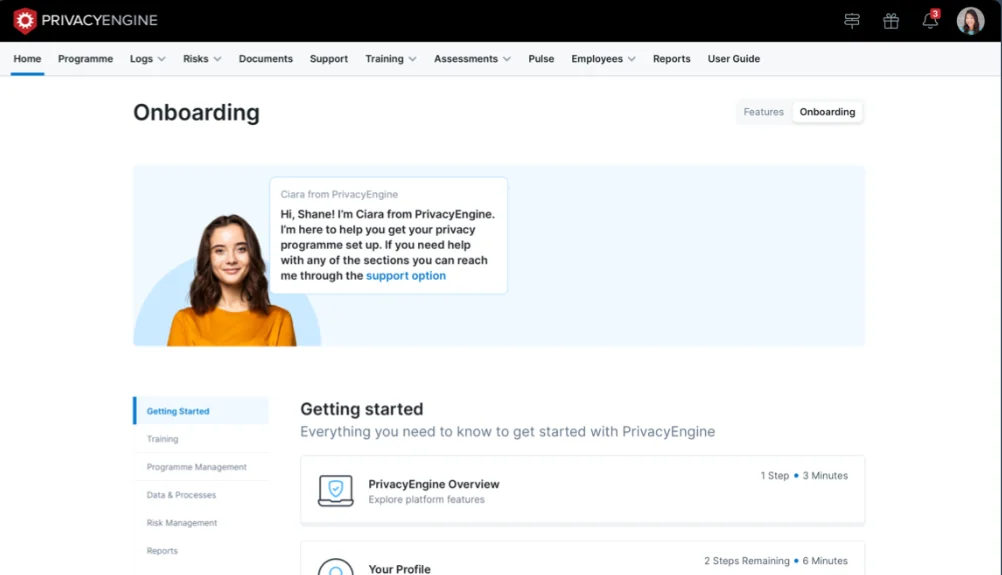Understanding the Role of a Chief Privacy Officer
As the title suggests, a Chief Privacy Officer is primarily responsible for overseeing an organization's privacy initiatives. This includes creating and implementing privacy policies, procedures, and strategies to safeguard sensitive information. The CPO acts as the guardian of personal data, ensuring that privacy practices are comprehensive, up-to-date, and in line with industry standards.
But what does it really mean to be a Chief Privacy Officer? Let's delve deeper into the role and explore the additional responsibilities that come with it.
Key Responsibilities of a Chief Privacy Officer
The role of a Chief Privacy Officer encompasses a wide range of responsibilities. Some of the key duties include:
- Developing and monitoring privacy programs to protect customer and employee data.
- Conducting privacy assessments and audits to identify vulnerabilities and potential risks.
- Collaborating with cross-functional teams to embed privacy by design principles into business processes.
- Ensuring the organization's compliance with privacy laws and regulations.
- Managing privacy breaches, investigations, and incident response.
- Providing advice and guidance on privacy-related matters to stakeholders.
- Keeping up-to-date with emerging privacy laws, regulations, and best practices.
- Educating employees and raising privacy awareness throughout the organization.
As you can see, the Chief Privacy Officer plays a crucial role in safeguarding the privacy of individuals and maintaining the trust of customers and employees. But what are the essential skills and qualifications that make a CPO successful in this role?
Essential Skills for a Chief Privacy Officer
To excel in the role of a Chief Privacy Officer, certain skills and qualifications are essential. These include:
- A deep understanding of privacy laws, regulations, and industry best practices.
- Strong analytical and problem-solving skills to assess and address complex privacy issues.
- Excellent communication and interpersonal skills to collaborate with stakeholders at all levels.
- Ability to influence and drive change in an organization.
- Attention to detail and a meticulous approach to risk assessment and mitigation.
- Strong knowledge of information security principles and practices.
- Ability to keep abreast of evolving privacy technologies and trends.
- A commitment to upholding ethical standards and maintaining trust.
These skills, combined with a passion for privacy and a dedication to protecting personal information, are what set a Chief Privacy Officer apart. It is a challenging yet rewarding role that requires constant learning and adaptation to the ever-changing privacy landscape.
The Importance of a Chief Privacy Officer in Today's Digital Age
In an era where data breaches and privacy scandals regularly make headline news, organizations can no longer afford to overlook the significance of a Chief Privacy Officer. Here are some key reasons why this role is crucial:
Protecting Customer Data
Organizations collect vast amounts of personal information from their customers. This data, if mishandled, can lead to severe consequences, ranging from financial loss and reputational damage to legal repercussions. A Chief Privacy Officer plays a vital role in ensuring that customer data remains safe, secure, and confidential.
Ensuring Compliance with Privacy Laws
Privacy laws and regulations are becoming increasingly stringent and complex. Non-compliance can result in hefty penalties and damage to an organization's reputation. By having a Chief Privacy Officer in place, organizations can not only navigate the legal landscape effectively but also demonstrate a commitment to protecting individual privacy rights.
As the digital landscape continues to evolve, the role of a Chief Privacy Officer becomes even more critical. With the rise of artificial intelligence, machine learning, and big data analytics, the amount of personal information being processed and stored by organizations is growing exponentially. This presents new challenges in terms of data protection and privacy, making the expertise of a Chief Privacy Officer indispensable.
Moreover, the role of a Chief Privacy Officer extends beyond just compliance and data protection. They also play a crucial part in building trust with customers and stakeholders. By implementing robust privacy policies, transparent data practices, and effective communication strategies, Chief Privacy Officers help foster a culture of trust and accountability within an organization.
